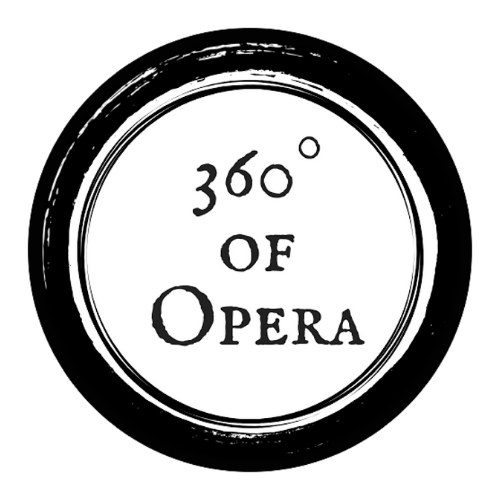Soldier Songs: from stage to screen
Photo Credit: Dominic Mercier / Opera Philadelphia
A new film of David T. Little's Soldier Songs, directed by Johnathan McCullough and produced by James Darrah, premieres on Friday, January 22, on the Opera Philadelphia Channel.
The Opera Philadelphia Channel creates a digital space in which artists can perform and explore, through a series of new commissions by visionary composers and dynamic performances produced for the screen.
David T. Little’s Soldier Songs (2006) has gained attention for its powerful exploration of the perceptions versus the realities of war. Based on interviews with veterans of five wars, the work combines elements of theater, opera, and rock-infused concert music and has received several imaginative stage productions prior to this film production.
360° of Opera interviews the director and protagonist of Soldier Songs, acclaimed baritone Johnathan McCullough.
Photo Credit: Dominic Mercier / Opera Philadelphia
1. Was this your first experience both directing & performing a project? And was it your first experience in the film medium?
This is my first venture into directing anything at all, let alone both directing and performing the same project. I enjoy thinking about operas and will sometimes design productions in my head, but this is the first time that it has come to fruition. I had done some commercials when I was younger, but this is my first experience doing anything longer than a commercial on film.
Photo Credit: Matt Hamm/ Opera Philadelphia
2. Were you already familiar with Soldier Songs and David T. Little’s music before taking on this project?
David and I were introduced to each other in 2016 when Opera Philadelphia produced a project called “Double Exposure” where two teams of directors, cast, and conductors go into separate rooms for a week and stage a scene by one of the composers in residence. I was cast in a scene from his opera “Dog Days” which was the first time I was introduced to his music. I loved it and started listening to more of his music and eventually came across “Soldier Songs”. Hearing the recorded voices of these interviews which start the piece stayed with me for years given how haunting and uniquely embedded into the score that they are.
3. What were the biggest challenges and the biggest rewards during this process for you?
I would say that learning how to schedule and budget time on a film shoot were probably the most challenging aspects of the process on a technical level. I really learned just how long set-up for particular types of shots take. It is a completely different prep and rehearsal process than live opera. One of the most rewarding things, as far as the artistic side, was being able to bring David's amazing piece to life in a brand new way and watching the final product come together in post-production.
Photo Credit: Matt Hamm
4. What kind of research did you do to bring to life such a complex character?
I did a lot of reading about mental health, particularly among veterans, along with listening closely to the text that is in the opera. Once I decided what direction I wanted to take the production, I dove into more specific study. My fiancée is a psychiatry resident, so whenever I had a question about how a certain symptom of PTSD manifests or needed some insight into the way it affects peoples' lives, I was lucky enough to have an expert on the subject in the next room over!
Photo Credit: Film Still / Opera Philadelphia
5. What do you hope audiences will experience when streaming this film?
My hope for this piece is that it will bring awareness to the struggles many veterans live with every day as a result of trauma and mental illness. The film also has a message to let people who are suffering know that reaching out for help is not a sign of weakness, but rather strength. At the same time, it gives those who are not suffering from mental distress insight to the experience so they can possibly take a moment to analyze how they perceive mental health as a whole.
Photo Credit: Film Still / Opera Philadephia
6. As an innovator in these difficult times the world, and the arts industry in particular, are facing, do you have a message of hope to share with our readers?
We will return to “normal” but we will return better, stronger, and more innovative than before. Artists are very resilient. I think this time has given a lot of artists time to think outside the box and experiment with new mediums. I would recommend that people use this time to check in with themselves. Do what makes them happy. Throughout history, darkness often precedes periods of artistic growth and creativity. After the Spanish Flu we had the roaring 20’s. After COVID-19 I have a feeling it will be time for the roaring 20’s round 2!
360° of Opera thanks Johnathan McCullough for his time and insights. We strongly encourage our readers to visit the new Opera Philadelphia channel and stream this new film!
Soldier Songs will be available on-demand from January 22, though May 31, 2021. Learn more at operaphila.tv.







